Ars Electronica Garden Melbourne
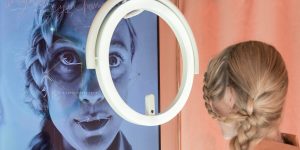
BIOMETRIC MIRROR
Lucy McRae, Natasha Greenhalgh, Dr Niels Wouters
Biometric Mirror is an immersive and at times controversial installation that blends the act of casually glancing at one’s reflection with modern algorithmic perspectives on facial perfection. The artwork explores the accuracy and flaws of artificial intelligence and the ‘uncanny valley’ of algorithmic perfection and its potential black mirror outcomes.
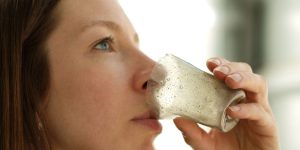
SEAWEED SALON
Lichen Kelp, Jessie French
A two-part workshop series by the Seaweed Appreciation Society International that invites you on a field trip to another world - an alternate seaweed reality, where edible algae bioplastics are mixed up alongside refreshing seaweed cocktails. By speculating on a radically sustainable seaweed future, we will be asking if biomutualism can play a part in our everyday lives in the future. A radical sustainable seaweed intervention has never felt more urgent.

Could an insect, human and android communicate through dance?
Prue Lang, Mathieu Briand, Mark Elgar and Alicia Sometimes
Join choreographer Prue Lang, artist Mathieu Briand and evolutionary ecologist Prof Mark Elgar as they discuss their journey with phasmids and BODY / INSECT / MACHINE, a work that explores the body/androids/artificial movement/intelligence on the one side and the body/human instinct/natural movement/nature on the other.
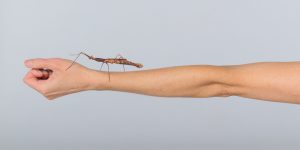
BODY / INSECT / MACHINE
Prue Lang, Mathieu Briand
BODY/ INSECT /MACHINE is a movement experiment between Prue Lang’s choreography, artist Mathieu Briand’s androids and a Phasmid (stick insect). The work explores the body/androids/artificial movement/intelligence on the one side and the body/human instinct/natural movement/nature on the other.

Oribokit: Gardening for Robots
Matthew Gardiner (AU)
Robotic Origami Workshop with Matthew Gardiner. ’Oribokit: Gardening for Robots‘ introduces a new artscience kit by Ars Electronica Futurelab researcher Matthew Gardiner. The kit allows you to make your own robotic garden at home. The assembled kit grafts onto a tree branch and is designed to minimise material usage and maximise modular recyclability for robotic origami applications. Kits include 1,2 or 3 oribotic blossoms featuring easy-to-fold laser-cut paper, servo motors, drive wires, and Arduino compatible STM32 microcontroller plus open-source firmware.
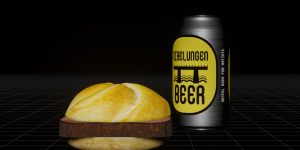
Beside the Nibelungen bridge / Neben der Nibelungenbrucke
Matthew Gardiner (AU)
Festival, late, Golden Nicas delivered. A mixed hoard spill into Linz; eclectic electric musicians chattering in nihongo, intro-and-extro-verted artists and friends not seen for an age for the tyranny of distance. Drawn involuntarily to places warmer and happier than Hans in Glück, to a lone Würstlstand in Linz. Perhaps beside the Linzer Nibelungenbrucke.
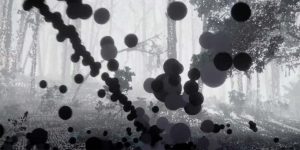
A Utopian Post-Colonial Future – Victoria, Australia 2027
Melbourne School of Design (MSD), The University of Melbourne (AU)
Can we imagine a utopia that creates a post-colonial social and political framework and overcomes the concept of land as commodity, inspired by indigenous concepts of relationship to country? Emerge yourself in VR to engage in a multitude of future scenarios that sketch out the potential to reflect on these questions.
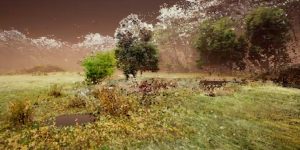
Voices of Country
Dr. Rochus Urban Hinkel (AU); in collaboration with NExT Lab, Melissa Iraheta and Tony Yu (AU); Büro Achter April (DE); Dr. Hélène Frichot (AU)
This VR movie is set in the rural landscape of the Dja Dja Wurrung aboriginal tribe in southern Australia. The project tells stories of the land from different perspectives, allowing the audience to move through the site by engaging in a VR environment, with narrators telling different stories.
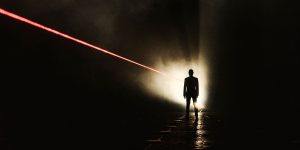
Interview with Jonathan Parsons and Matthew Sleeth
Matthew Sleeth, Jonathan Parsons, Lubi Thomas
In this interview, the Artist Matthew Sleeth will be joined by his producing partner and Experimenta Artistic Director Jonathan Parsons.
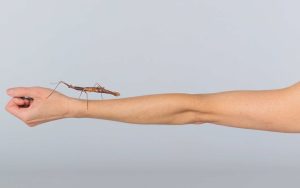
Igniting Creativity and Discovery where Science and Art Collide - Melbourne
Science Gallery Network (Int. - Atlanta/Dublin/Venice/Melbourne/London/Bengaluru/Detroit)
The Science Gallery Garden at the Ars Electronica Festival will explore trust, technology, global challenges, arts innovation and new forms of digital storytelling. A showcase from the world’s only university network dedicated to public engagement with science and art, it will feature interactive workshops, experimental audio and visual experiences, livestreamed events and a specially-curated digital archive.
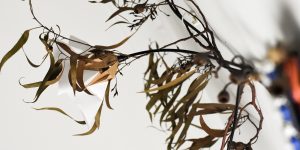
Beside the Nibelungen bridge & Oribokit: Gardening for Robots
Studio Matthew Gardiner (AU)
Wherever you are today and whenever you may have sat or stood somewhere, late late late at night, in Linz, this work is for you, this work invites you use our AR gadgets to place a Wurststand in your town, or place a Leberkässemmel on your plate at home. Share a post and write a short memory of a day (or night) at an Ars Electronica Festival.
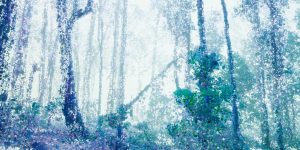
Past and Future Utopia
Melbourne School of Design (MSD), The University of Melbourne (AU)
Set on the indigenous land of the Dja Dja Wurrung, in rural Victoria, Australia, we present two projects that explore how we can reimagine and rethink a rural site, its past and its future. These intertwined projects create a relationship to Country and dive into the complexity of histories and stories, told from a pre-settlement, a colonial, and a utopian post-colonial perspective.

The Experimenta Garden - A Drone Opera (2015 – 2020)
Experimenta (AU)
The Experimenta Garden features the multi-platform work A Drone Opera (2015 – 2020)


